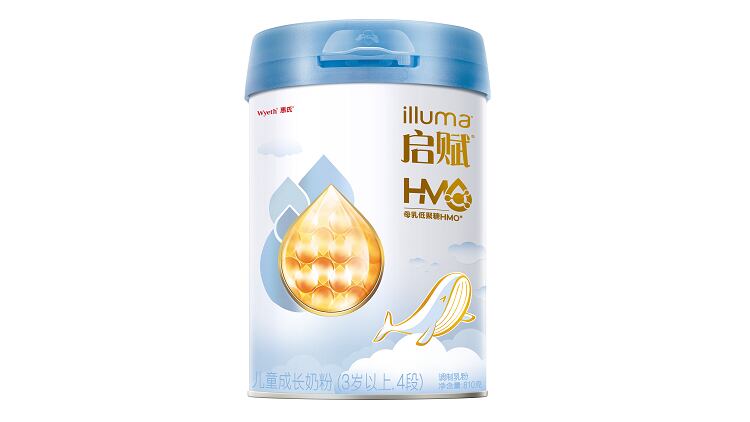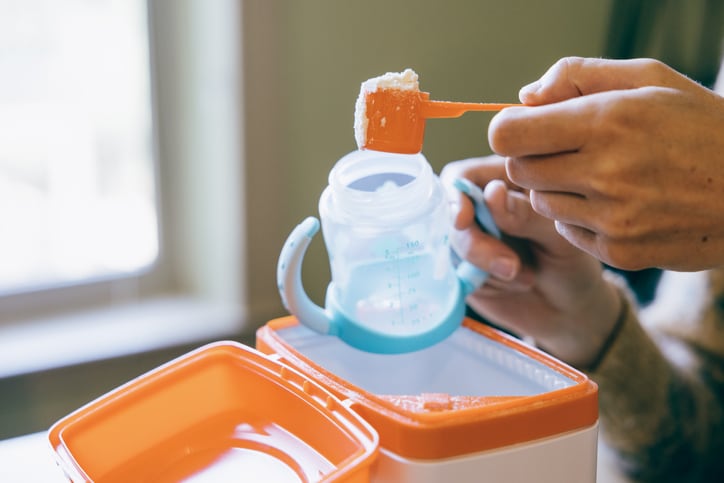The approval allows 2’-FL/DFL to be added in infant formulas up to a maximum limit of 96mg/100 kJ.
The other three HMOs approved are lacto-N-tetraose (LNT), 6’-sialyllactose (6’-SL) sodium salt, and 3’-siallylactose (3’-SL) sodium salt, with a maximum limit of 32mg/100kJ, 16mg/100kJ, and 8mg/100 kJ respectively.
These HMOs are produced by the company’s subsidiary firm Glycom A/S and marketed under the trademark GlyCareTM.
The approval also granted dsm-firmenich exclusivity in supplying the four HMOs for infant formula use in Australia and New Zealand for 15 months from the date of gazettal.
These four HMOs are produced by microbial fermentation using a genetically modified strain of Escherichia coli K-12.
Dsm-firmenich said that it was the first HMO manufacturer to apply and obtain approval for the four HMOs in the region.
“We were the first company to bring 2’-fucosyllactose (2’-FL) and lacto-N-neotetraose (LNnT) HMOs to Australia and New Zealand. But the approval of these additional four ingredients opens up even more avenues for pioneering advancements in the realm of early life nutrition,” said Christoph Röhrig, head of HMO Regulatory.
The company also believes that the approval would support its HMOs market access in other APAC countries.
“Australia and New Zealand are important markets as FSANZ opinions are highly valued by regulatory authorities in other countries - particularly in Asia-Pacific - and therefore support market access to these HMOs in other regions”, said Maryse Darch, regulatory and scientific affairs manager.
Elsewhere in Singapore, Thailand, EU, and the US, the company has also received approval for the use of its six HMOs, namely 2’-FL, 2’-FL/DFL, LNT, 6’-SL sodium salt, 3’-SL sodium salt, and Lacto-N-neotetraose (LNnT).
The FSANZ, on the other hand, said in its risk assessment report, that the inclusion of a wide range of HMOs to infant formulas have could enable the microbiota profile of formula-fed babies to more closely resemble that of breastfed infants.
It pointed out that evidence has shown that HMOs added to infant formulas could lead to an increase in the abundance of Bifidobacterium spp in infant gut microbiota, citing findings from a 2022 study by Bosheva et al.
According to the study, there was a significant increase especially for Bifidobacterium longum subsp. Infantis (B. infantis), in infants who consumed infant formulas containing 1.5 g/L of HMOs – including 2’-FL, LNT, 3’-SL, 6’-SL – as compared to the control group. Their gut microbiota was also more similar to the breastfed group.
The study also showed the anti-pathogenic effects of the HiMO blend through a significant reduction in Clostridioides difficle, a bacterium that causes diarrhoea and colon inflammation or colitis.
On the other hand, 2′-FL was also shown to support inflammatory suppression and facilitate appropriate immune responses and antigenic memory, the FSANZ said.
Other companies that have secured HMOs approval from FSANZ previously included Friesland Campina, whose 2’-FL trademarked AequivalTM was approved for a 15-month exclusive use in October 2022.





